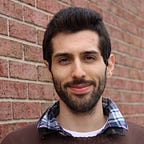Thousand Currents Academy: My Experience
A Transformative Donor-Organizing Education
“When someone is embraced as a result of their sharing by a listener or a community of listeners, their sense of isolation or difference decreases. Their sense of belonging increases. Their narrative also can shift as a result of this experience of embrace.”
- Sayra Pinto, Academy Facilitator
Since the Thousand Currents Academy retreat, I have come round to believing I am not public enough in my identity: I am a wealth-inheriting donor to social justice movements.
I have been donating since I inherited wealth from my mom. Still, I never thought of myself as a philanthropist, mostly because I reject the institution of it. Its history, including its origins, are of barons robbing, sometimes murdering their workers in the face of strikes, then evading taxes to hoard the wealth among their chosen beneficiaries at collective expense, especially harming people of color and poor folk. This is not a legacy I want to associate with.
At the same time, I see now how this low key philanthropy has given power to those who do loudly claim the title to decide what it means. I do not want to associate with the legacies of Whiteness, and yet I loudly and joyously proclaim myself a White race traitor, partly in hope of empowering others who feel similarly but face discouragement. I am due to model the same as both a person with wealth generally, and a philanthropist especially.
Coming from a few different Resource Generation events, I feel pretty comfortable in spaces meant to push us donors and philanthropy-workers. (I personally do not work in a foundation, but many participants at the Thousand Currents Academy do.) Arrival day gets us settled in the space, and getting to know each other. There are some familiar faces for me, all from RG, and it is lovely to see them. Our first full day, we are introduced to the principles of theatrical jazz by facilitators Omi and Sharon (Omi literally wrote the book on this). This grounds us in our relationship to ourselves. A retreat ostensibly about leveraging our power as funders to distribute wealth more equitably, the first day asks us, “What is the truth we are unwilling to admit to ourselves?” The whole retreat serves as reminder, demonstration, that we must dig into ourselves for collective liberation to work.
The second day, we reflect on our relationship to Earth in a system that wants us to relate to it as commodity. We reflect on our Sovereign Logic, the four questions of: our ancestral lineage, our land, our experiences, and our learning done through relationship to others. Questions asked by participants about not knowing our land, or who our people are, are met with with casual, knowing smiles by the facilitators, “I invite you to sit in that tension.” This tension around not knowing our people, White or of color, is but one legacy of the violence of White supremacy. It is a small tension, that opens into something greater.
My Irish and Italian ancestry, once rich in their knowledge of Earth practices, were either themselves oppressed by wealth, and/or opted into its violence. My own, specific ancestors have a mixed history of acting in solidarity with folk of color, or selling them out to opt into Whiteness. As a result, I myself have lost my birthright to these ancient Earth practices. It is this day that Sayra offers what I believe to be the crux of the Academy experience, a paraphrase: “You came here wanting tools to bring back to your community, perhaps so you could know what to do. But the truth is, you are the tool. Your body knows what to do. And the work is about getting in touch with that wisdom.”
Day three is the most conventional. Having grounded ourselves in our truths and logics and bodily wisdom, we are treated to presentations about the on-the-ground organizing work that Thousand Currents supports. This includes #BlackLivesMatter within the US, as well as many liberatory movements around the world, especially imperialized nations. Even on this “conventional day,” however, the work being discussed is revolutionary, and enlivening.
Again, we are invited to go internal: What can we do now, rooted in our wisdom, and empowered by the knowledge of what other movements are doing, to support collective liberation within our own philanthropic work/institutions? We begin to discuss this in small groups.
Day four, we grow out the details of our action steps. Mine include taking on more public identity as a donor-philanthropist, and transitioning from my family’s traditional wealth advisors to those with a focus on regenerative economic models. (I am grateful to discuss with anyone seeking this). Our groups form camaraderie, and hold support for each other. We celebrate our commitments, and discuss follow-up. The next day, we present to the whole group, and disband, disperse… like seeds…
I know I have been transformed by the experience. It is harder to say how. Community is healing, and I felt it then in full force. The education we received was transformational, in relationship to ourselves and each other, as all best education is. We often do not know what we carry until we put it down. We often do not know how much easier it is to do the work than to resist it — until we pick it up.
This model of philanthropy is not about helping the less fortunate. This is not about charity. This is about recognizing our personal stake in collective liberation. This is about love — for humanity, and ourselves.
